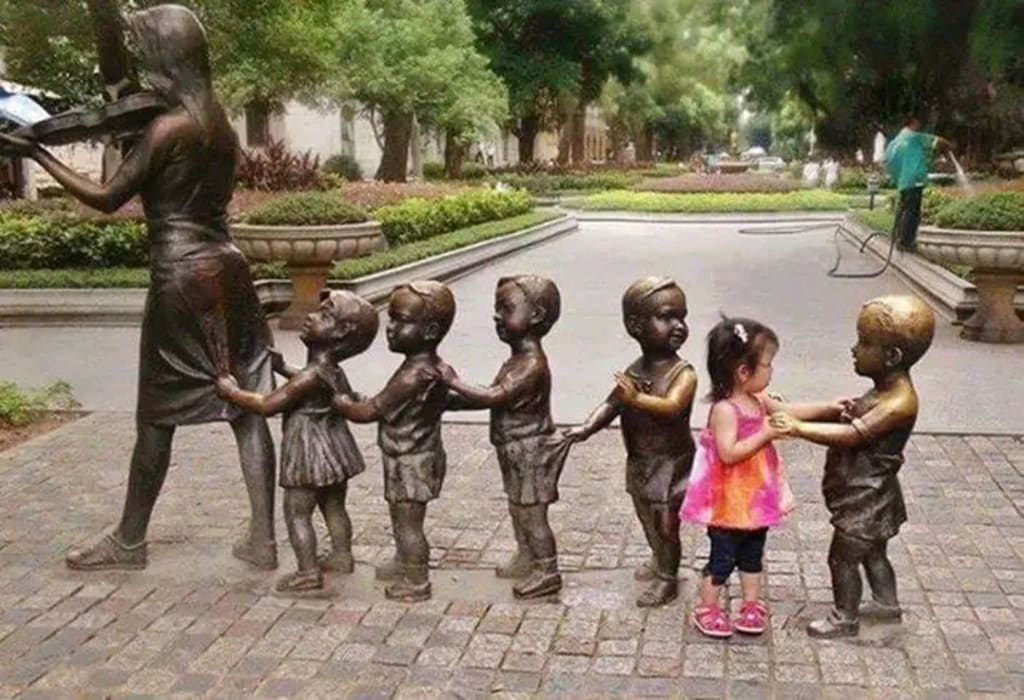
introduction:
Play is an integral part of a child's development and learning. It is a natural and enjoyable way for children to explore the world around them, express themselves, and develop important skills and abilities. Play can take many forms, including imaginative play, physical play, creative play, and games. Each type of play offers different benefits and opportunities for children to grow and learn.
Play is not only fun, but it is also a critical component of a child's overall development. Through play, children can develop their physical coordination and motor skills, as well as their cognitive, emotional, and social skills. Play also helps children to develop their creativity, imagination, and problem-solving abilities.
Research has shown that play-based learning can have a positive impact on children's academic performance and future success. It can help children to develop positive attitudes towards learning and improve their focus, concentration, and motivation.
In this digital age, it is more important than ever to ensure that children have opportunities to engage in play-based learning. By providing children with a range of play-based learning experiences, we can support their growth and development and help them to reach their full potential.
1 - Learning from playing:
Play is an essential part of a child's development and education. It is a natural and enjoyable way for children to explore, experiment, and make sense of the world around them. Through play, children can develop their physical, emotional, social, and cognitive skills. Here are some of the key things that children learn through play:
A - Physical skills: Children can develop their fine and gross motor skills through play activities such as running, jumping, climbing, and throwing. These activities also help to build strength, coordination, and balance.
B - Emotional development: Play provides children with opportunities to express their emotions and feelings. They can act out different scenarios, play with dolls, and pretend to be someone else, all of which help to develop their emotional intelligence.
C - Social skills: Play provides children with opportunities to interact with other children and learn important social skills such as sharing, cooperation, and communication. Children can also learn to resolve conflicts and negotiate through play.
D - Cognitive development: Play can help children to develop their cognitive skills, including their memory, problem-solving abilities, and creativity. For example, playing with puzzles and building blocks can help children to develop their problem-solving skills, while playing with art supplies can encourage creativity.
E -Language skills: Play can also help children to develop their language skills. Through play, children can learn new words and expand their vocabulary. They can also practice using language in a variety of contexts, such as giving instructions, asking questions, and expressing their thoughts and feelings.
2 - some Play learning methods;
Here are some play-based learning methods that can help children to develop and grow:
A - Pretend play: Pretend play is when children act out different scenarios and roles, using props and costumes to bring their imaginations to life. This type of play allows children to express their emotions, practice social skills, and develop their language and cognitive abilities.
B - Blocks and building toys: Blocks and building toys, such as Legos and blocks, provide children with opportunities to experiment with different designs and structures. This type of play can help children to develop their spatial reasoning and problem-solving skills.
C - Art and craft activities: Art and craft activities, such as painting and drawing, provide children with opportunities to express their creativity and imagination. They can also help children to develop their fine motor skills and hand-eye coordination.
D - Dramatic play: Dramatic play involves acting out scenarios, using props and costumes, to tell a story. This type of play can help children to develop their language skills and emotional intelligence, as well as practice social skills such as cooperation and communication.
E - Outdoor play: Outdoor play, such as running, jumping, and climbing, provides children with opportunities to develop their gross motor skills and physical fitness. Outdoor play can also help children to learn about the natural world and develop a sense of wonder and curiosity.
F - Board games and puzzles: Board games and puzzles can help children to develop their problem-solving and critical thinking skills. They can also help children to practice social skills, such as taking turns and following rules.
G - Music and dance: Music and dance provide children with opportunities to express themselves and develop their creativity. They can also help children to develop their physical coordination and rhythm.
These play-based learning methods are just a few examples of the many different ways that children can learn and grow through play. The key is to find activities that your child enjoys and that support their individual interests and needs
3 - some books about Play learning methods:
here are some books that discuss play-based learning methods and their benefits for children:
A - "The Power of Play: How Spontaneous, Imaginative Activities Lead to Happier, Healthier Children" by David Elkind
B - "Play: How It Shapes the Brain, Opens the Imagination, and Invigorates the Soul" by Stuart Brown and Christopher Vaughan
C - "How Play Makes Children Strong: An Activity Book for Teachers and Parents" by Janet Gonzalez-Mena
D - "The Art of Roughhousing: Good Old-Fashioned Horseplay and Why Every Kid Needs It" by Anthony T. DeBenedet and Lawrence J. Cohen
E - "Playful Learning: Develop Your Child's Sense of Joy and Wonder" by Mariah Bruehl
F - "The Importance of Play: How to Boost Brain Development in Children" by Ashley Merryman
G - "The Science of Play: How to Build Strong Bonds and a Thriving Relationship with Your Child" by David Schulz and Paul D. Warrick
These books provide valuable insights and information on the benefits of play-based learning and offer practical tips and activities to help parents and educators support children's growth and development through play
conclusion
In conclusion, play is an important part of a child's development and education. It provides children with opportunities to develop their physical, emotional, social, and cognitive skills in a fun and engaging way. So, encourage your children to play and watch them grow and learn in the process!
About the Creator
kamal
The pleasure of reading is an exquisite joy that knows no bounds. It is the captivating dance of words upon the page, weaving a tapestry of emotions, thoughts, and ideas within our minds. As we immerse ourselves in the pages






Comments
There are no comments for this story
Be the first to respond and start the conversation.